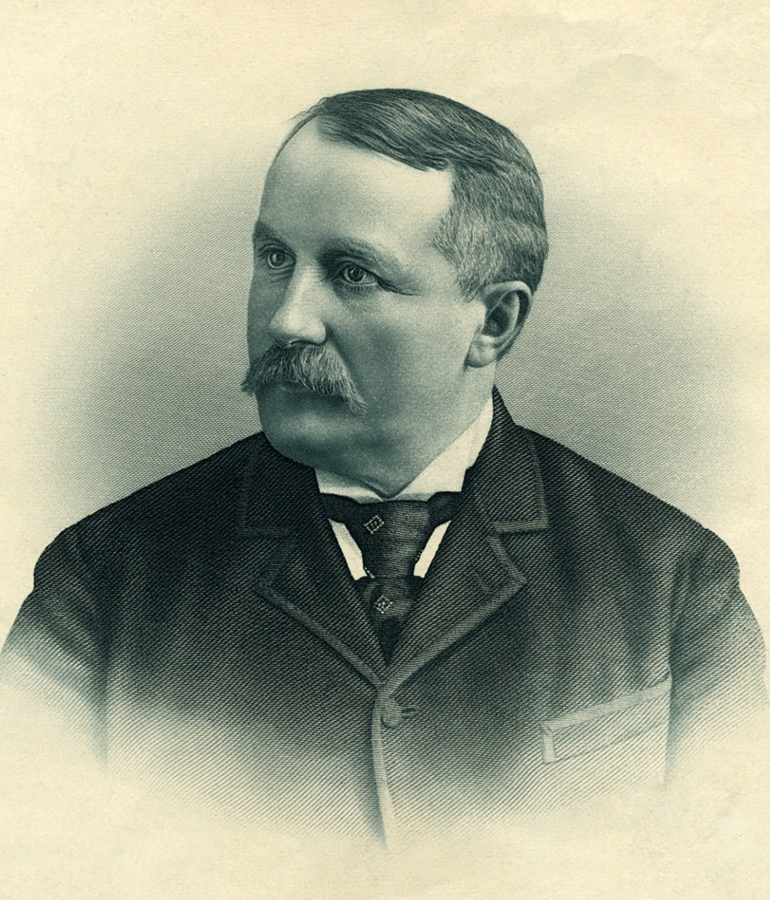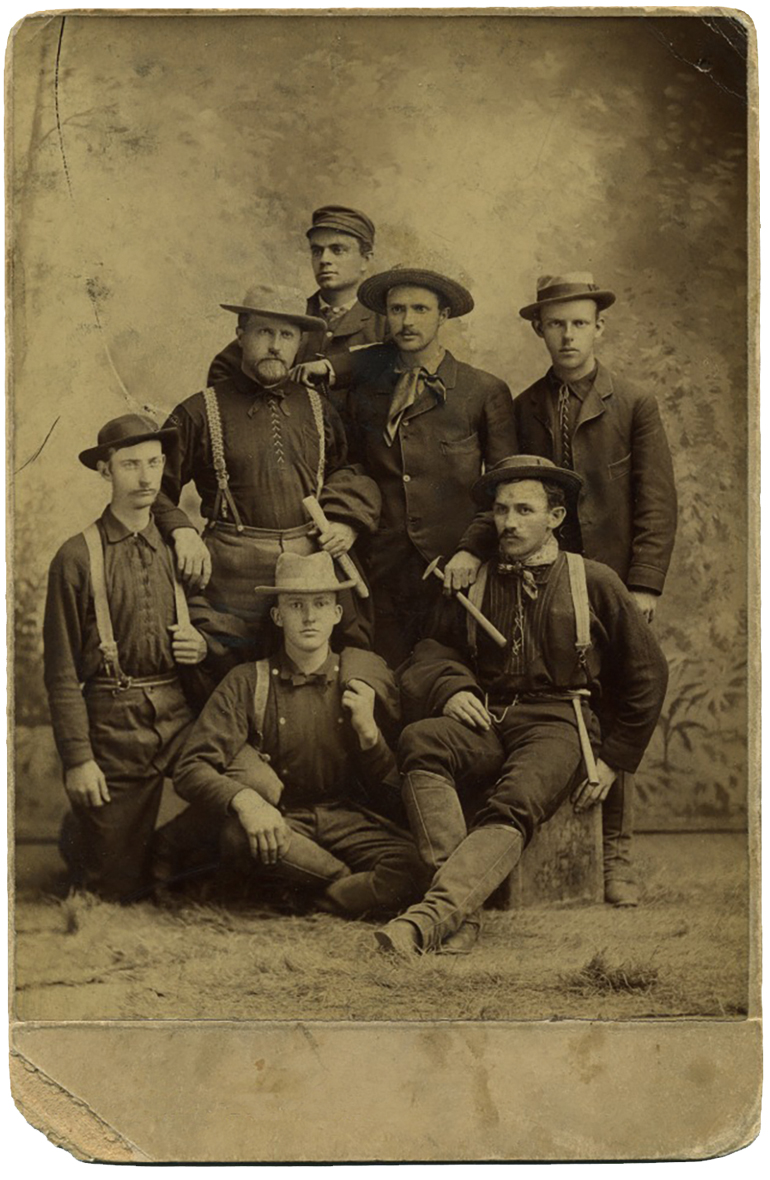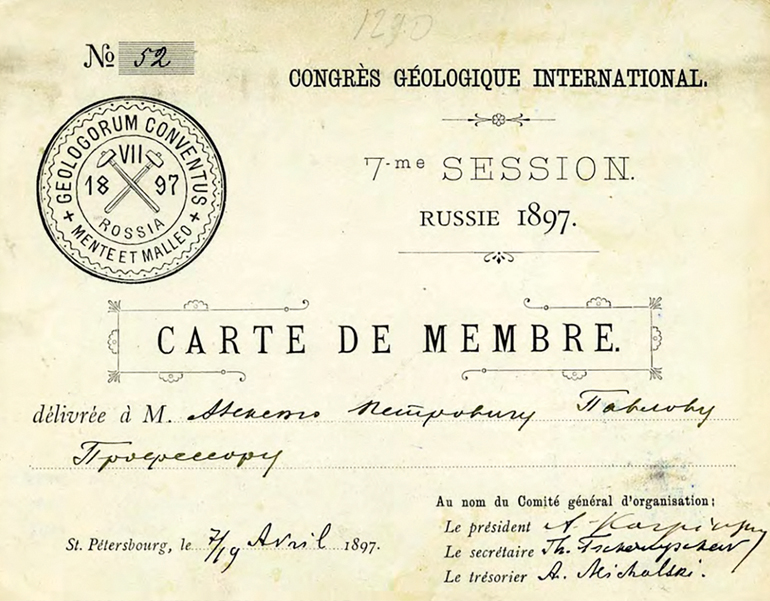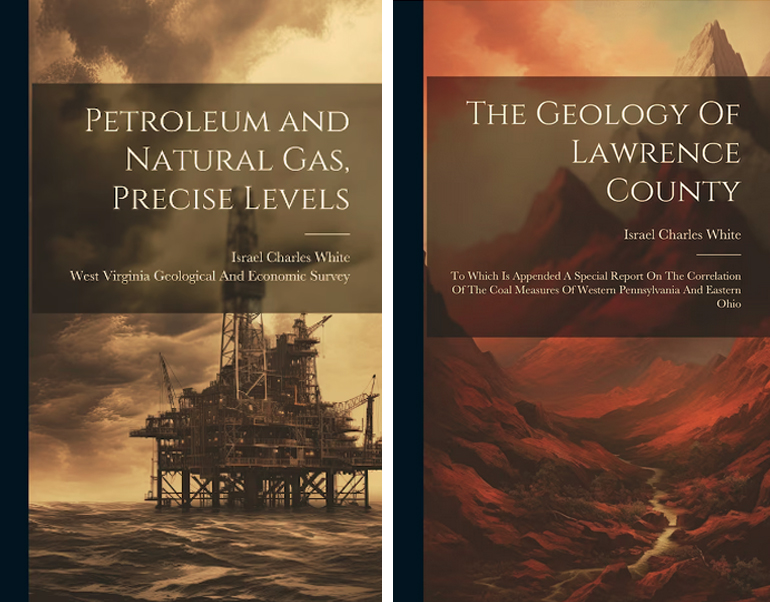Israel Charles White
The First State Geologist of West Virginia
Israel Charles White made significant contributions to the knowledge of the geology of the oil, gas, and coal reserves of the Appalachian Basin. He developed the anticlinal theory of oil and gas accumulation and made his fortune drilling the anticlines.White’s geological experience began with the Second Geological Survey of Pennsylvania and continued with the U.S. Geological Survey through 1888. He invested heavily in oil leases, coal, and real estate, and worked as a consultant consultant for Hope Natural Gas Company and the Baltimore and Ohio Railroad. From 1904–06, he made a survey of coal and oil resources in for the government of Brazil.
He was appointed State Geologist of West Virginia in 1897—a position he held for 30 years. He initiated topographic and geologic mapping for the entire state, and developed a statewide mineral resources map. White’s contributions were significant: he was involved in producing over 200 Appalachian petroleum and coal maps and publications.
White was one of the original founders of the Geological Society of America, serving as the organization’s Treasurer, Councilor, First Vice President, and President.
Theory to Practice
While he contributed significantly to the geology of coal, oil, and gas, White’s use of the “anticlinal theory” of oil and gas accumulation allowed him to make his personal fortune drilling the anticlines. White tested the concept successfully with the drilling of the discovery well in the Mannington Oil Field in West Virginia. White was the first chairman of the Department of Geology at West Virginia University, where he taught from 1877–1892. In 1892, he left academia to pursue full-time work in the petroleum industry. The anticlinal theory was successfully utilized in the search for oil by prospectors like White who knew how to employ it when searching for possible drilling sites. White’s use of this theory earned him the nickname the “Father of Oil Geology.”White’s Anticlinal Theory
The anticlinal theory is a geological concept stating that oil and natural gas accumulate in the highest points of porous rock layers, within anticlinal, or arch-shaped folds in the Earth’s surface. The theory suggests that these hydrocarbons migrate upwards through permeable rock until they encounter an impermeable barrier where they become trapped in the most elevated portions of permeable beds—the anticlines.Of Note
The Father of Oil Geology
State Geologist of West Virginia
Famous Oil and Gas Wildcatter
State Geologist of West Virginia
Famous Oil and Gas Wildcatter
About the Images
A portrait I.C. White
West Virginia University geology faculty members including White, ca. 1882–1884
In April 1897, White served as a delegate to the prestigious International Geological Congress in St. Petersburg, Russia.
White widely published his theories and findings. As the state geologist, he helped to develop a complete set of topographic maps of West Virginia, in addition to 34 book-length reports on specific resources and county reports.
West Virginia University geology faculty members including White, ca. 1882–1884
In April 1897, White served as a delegate to the prestigious International Geological Congress in St. Petersburg, Russia.
White widely published his theories and findings. As the state geologist, he helped to develop a complete set of topographic maps of West Virginia, in addition to 34 book-length reports on specific resources and county reports.




